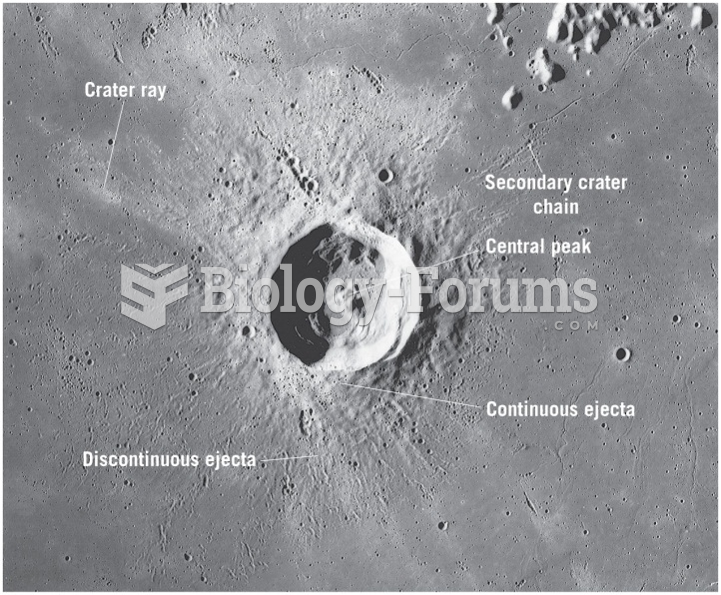|
|
|
Adults are resistant to the bacterium that causes Botulism. These bacteria thrive in honey – therefore, honey should never be given to infants since their immune systems are not yet resistant.
Asthma cases in Americans are about 75% higher today than they were in 1980.
Pubic lice (crabs) are usually spread through sexual contact. You cannot catch them by using a public toilet.
Egg cells are about the size of a grain of sand. They are formed inside of a female's ovaries before she is even born.
Cutaneous mucormycosis is a rare fungal infection that has been fatal in at least 29% of cases, and in as many as 83% of cases, depending on the patient's health prior to infection. It has occurred often after natural disasters such as tornados, and early treatment is essential.







